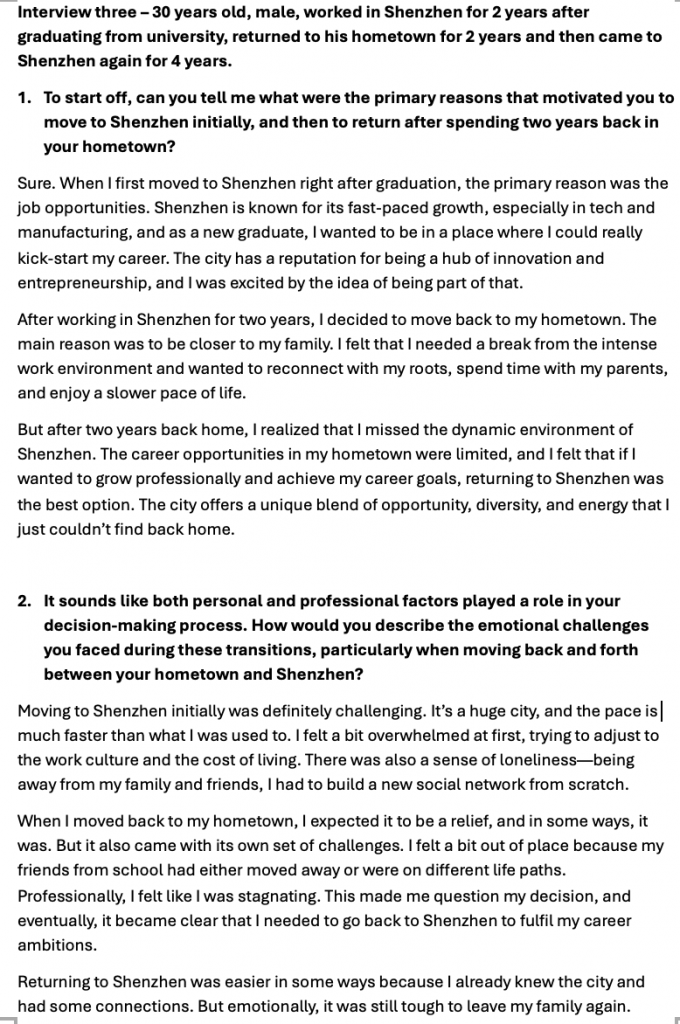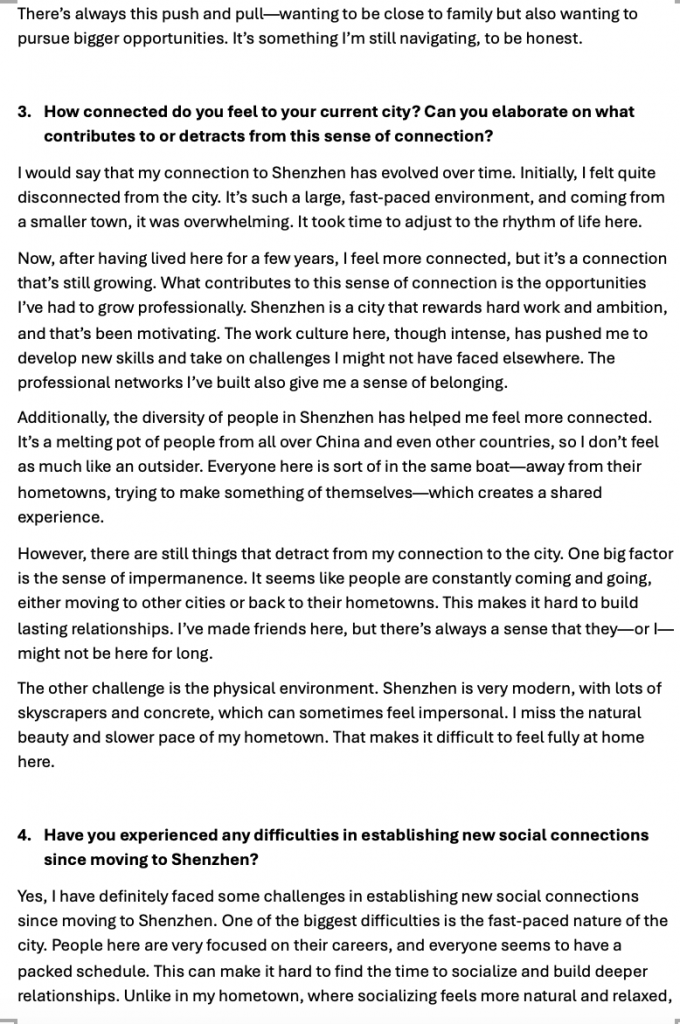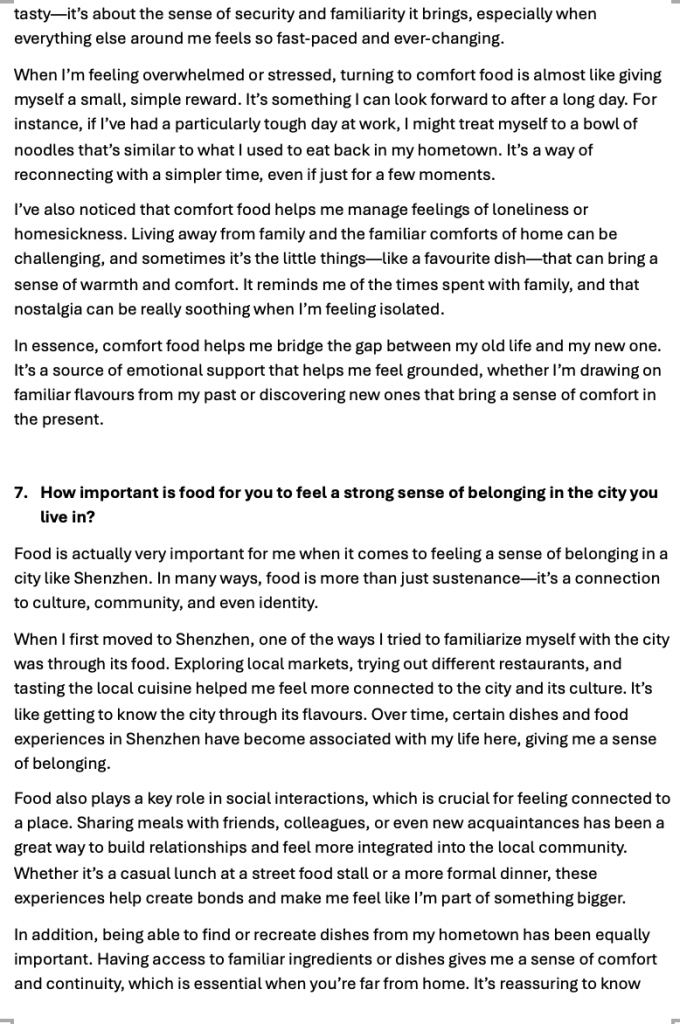The participant is a 30-year-old male who is currently working in Shenzhen. He worked in Shenzhen for 2 years after graduating from university, then returned to his hometown to work for 2 years, and then came back to Shenzhen to work for 4 years. He described in detail his motivations, challenges and coping strategies for living in Shenzhen. While appreciating Shenzhen’s opportunities and vibrant environment, the participant also experienced difficulties in making lasting connections and coping with the stresses of city life, and often found a sense of solace and belonging through food.
Motivation to Move to Shenzhen: Initially, he moved to Shenzhen right after graduating from university due to the abundant job opportunities, particularly in tech and manufacturing, which the city is known for. After two years in Shenzhen, he returned to his hometown to be closer to his family and to take a break from the intense work environment. However, he later realized that he missed the dynamic atmosphere and professional opportunities in Shenzhen, leading him to return to the city after two years at home.
Emotional Challenges During Transitions: Moving to Shenzhen was initially overwhelming due to the fast-paced environment, high cost of living, and feelings of loneliness from being away from family. Returning to his hometown provided some relief but also led to feelings of professional stagnation and disconnection from friends who had moved away or were on different life paths. Returning to Shenzhen was easier the second time around due to his familiarity with the city, but it remained emotionally challenging to leave his family again.
Sense of Connection to Shenzhen: His connection to Shenzhen has evolved over time. Initially, he felt disconnected due to the city’s overwhelming size and pace. However, over the years, he has developed a stronger connection, primarily due to the professional opportunities and the diverse, ambitious community. The transient nature of the population and the impersonal, modern physical environment of the city, however, detract from his sense of belonging, making it difficult to build lasting relationships.
Difficulties in Establishing Social Connections: Establishing social connections in Shenzhen has been challenging due to the city’s fast-paced nature, with people often focused on their careers and limited time for socializing. The transient population further complicates forming stable relationships, as many friends and acquaintances move away after a short period.
Coping Strategies: To cope with emotional challenges, he focuses on setting and achieving personal and professional goals, embracing change and uncertainty, and actively exploring and engaging with what Shenzhen has to offer. Practicing self-compassion and allowing himself to process emotions healthily has also been important for managing the emotional ups and downs.
Role of Comfort Food: Comfort food plays a significant role in managing stress and emotional challenges. It provides a sense of security and familiarity, particularly when life in the city feels overwhelming. Enjoying dishes from his hometown helps him reconnect with simpler, more comforting times and alleviates feelings of loneliness and homesickness.
Importance of Food for Belonging: Food is crucial for his sense of belonging in Shenzhen. Exploring the local food scene helped him familiarize himself with the city and feel more connected to its culture. Sharing meals with others has been important for building social bonds and feeling integrated into the community. Additionally, being able to find or recreate dishes from his hometown provides a sense of continuity and comfort, helping Shenzhen feel more like home.
Interview transcript & consent form:





